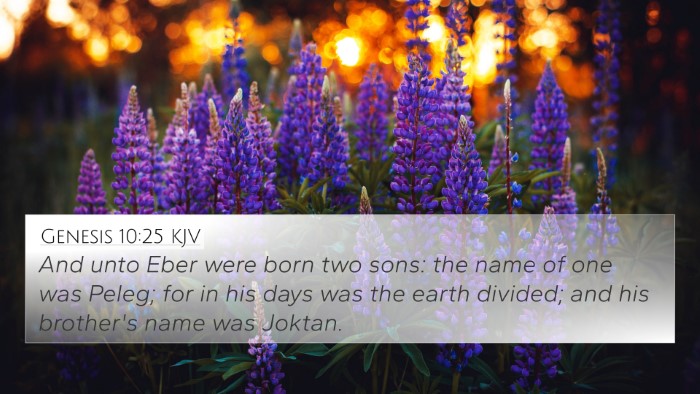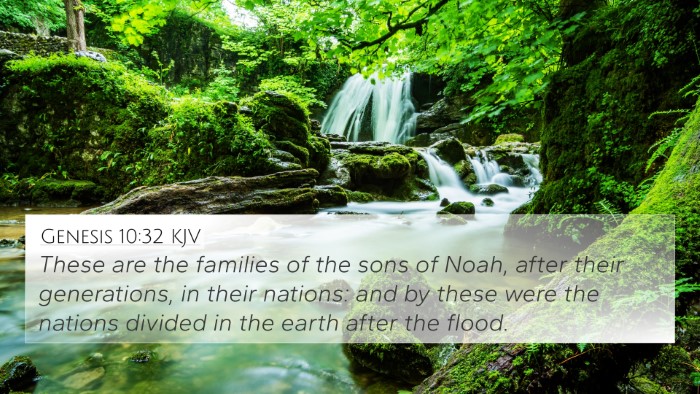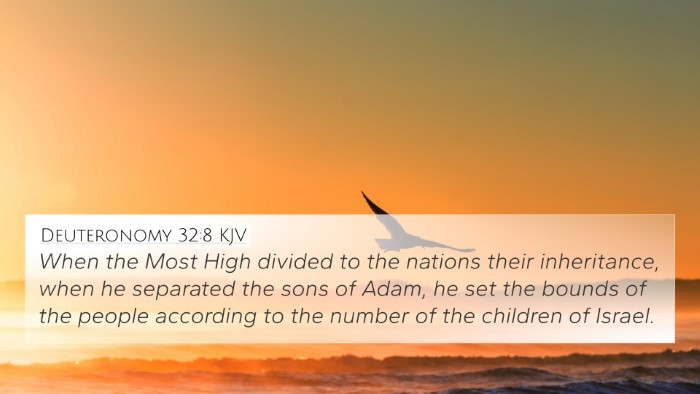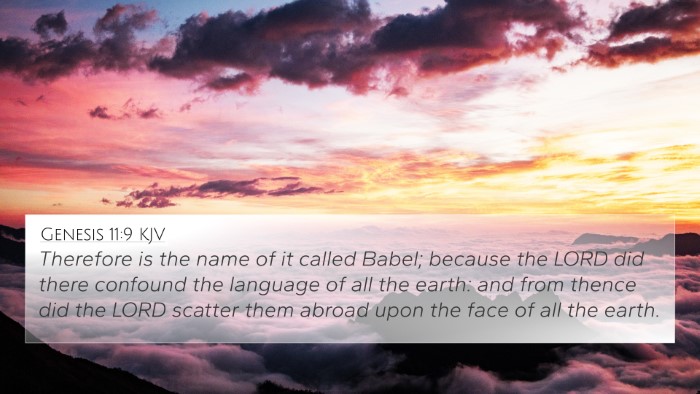Understanding Genesis 11:8
Bible Verse: Genesis 11:8 states, "So the Lord scattered them abroad from thence upon the face of all the earth: and they left off to build the city."
Verse Explanation
This verse describes a pivotal moment in biblical history, where God intervenes to disperse the people of Babel. The motivation behind this act is rooted in the pride and ambition of humanity, who sought to make a name for themselves and build a city that reached the heavens. It illustrates the consequences of collective human endeavors that defy divine will.
Commentary Insights
-
Matthew Henry: Henry emphasizes that God’s judgment was not purely punitive but was also an act of mercy to prevent humanity from becoming entirely united against Him. The creation of diverse languages was indeed a means of dispersing the people, but it served God's ultimate purpose of maintaining order and preventing sinful ambition.
-
Albert Barnes: Barnes notes the significance of God scattering the people. The act serves as a testament to God's sovereignty over humanity’s plans. He discusses how the scattering was a necessary response to their united defiance, encouraging readers to recognize the futility of human pride against divine authority.
-
Adam Clarke: Clarke provides a linguistic analysis of how the term "Babel" relates to "confusion," highlighting that the confusion of languages was intended to hinder the people's prideful undertaking. He interprets this event as a clear instruction that God’s will cannot be thwarted by human endeavors.
Bible Verse Cross-References
Genesis 11:8 can be cross-referenced with several other biblical texts that discuss similar themes of divine intervention, human pride, and the scattering of nations:
- Genesis 10:32 - Discusses the nations and their dispersion.
- Acts 17:26 - Relates to God assigning nations and their boundaries.
- Isaiah 14:12-15 - Addresses the prideful ambition of humanity.
- Psalms 68:1 - "Let God arise, let His enemies be scattered."
- 1 Peter 5:5 - God opposes the proud but gives grace to the humble.
- James 4:6 - Emphasizes humility and God's opposition to pride.
- Deuteronomy 32:8 - Discusses the division of nations by God.
Thematic Connections
Genesis 11:8 aligns with several themes found throughout Scripture, such as:
- The Unity of Humanity: The passage captures a moment of unified human effort that ultimately fails when confronted with God's will.
- Divine Sovereignty: It exemplifies the belief that no human plan can succeed against God’s will.
- Pride vs. Humility: The desire to build a tower to the heavens can be seen as a metaphor for human pride, in contrast to the humility called for in faith and obedience to God.
- Judgment and Mercy: While God's intervention can be seen as a judgment, it also serves as an act of mercy to divert humanity from self-destruction.
Conclusion
In Genesis 11:8, we witness a profound moment of divine intervention showcasing God's authority over humanity's plans. The scattering of the people leads to a variety of languages and cultures, emphasizing the theme of diversity within God’s creation. This narrative reshapes our understanding of collective ambition when separated from divine alignment, inviting readers to reflect on humility and the recognition of God's sovereign purpose.
Further Study Suggestions
If readers wish to delve deeper into the themes found in Genesis 11:8, consider exploring:
- Comparative studies of humanity's ambition and God’s responses across the Scriptures.
- Discussion on how later biblical writings, particularly in the New Testament, address the themes of unity and diversity in Christ.
- Focus on how the scattering of nations relates to the Great Commission found in Matthew 28:19-20.
- Using tools for Bible cross-referencing to find links between this passage and others that reflect God’s sovereignty over human affairs.









